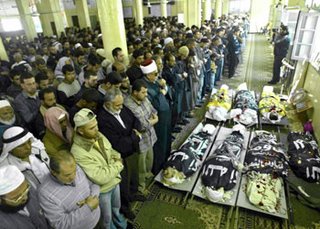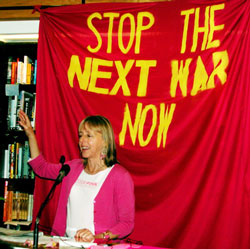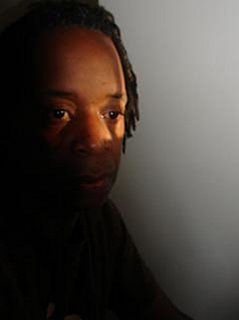By Amira Hass
Haaretz
29 November 2006
For nearly a month now, a young Palestinian has been
hospitalized at Beilinson Hospital; soldiers shot him at a
checkpoint in northern Nablus on Saturday, November 4.
Haitem Yassin, 25, is conscious now, but he is still
hooked up to a respirator. In recent days, he has been
suffering from a high fever, apparently caused by an
infection in his abdomen, which was wounded in the
shooting. His family is still waiting for a report from
the hospital about the number or type of bullets that
caused the serious injury.
At the Samaria Brigade, they are still investigating what
happened that day at the fortified and isolated Asira
al-Shmaliya checkpoint, through which only the inhabitants
of several villages are permitted passage. However,
according to testimonies taken by a researcher for
B'Tselem - The Israeli Information Center for Human Rights
in the Occupied Territories, it emerges that Yassin had
irritated the soldiers. He dared to suggest to them that
their demand of women to feel their own bodies to carry
out a "security check" was inappropriate. So annoying was
he that a soldier shoved him.
Yassin, who had returned from overseas a few months
earlier, had apparently not yet internalized the fact that
it is dangerous to remind a soldier that a Palestinian is
a human being. When the soldier shoved, Yassin shoved
back. The soldier, according to the testimonies, started
to scream and curse and hit. He quickly received
reinforcement from two other soldiers, who fired into the
air and at the ground. Even though Yassin fell to the
ground after the shooting, the soldiers, relate the
witnesses, threw him onto a concrete block, handcuffed him
and kicked him. They also kicked him in the head,
according to the testimonies, and beat him with their
rifles.
In a village in the Nablus area, S., another young
Palestinian, is recovering from the trauma he suffered
from a harsh beating at the hands of a soldier at the Jit
checkpoint, midway between Nablus and Qalqilya. The office
of the Israel Defense Forces Spokesman has stated that it
was the young man who had shoved and hit a soldier who
told him to return to his vehicle, whereas the soldier
only fended him off, but the testimony of S. is completely
different. He, like many others on that day, November 9,
had got out of his vehicle while on the way to the Jewish
settlement where he works, in order to find out why, just
when everyone was hurrying to work, the line of cars at
the checkpoint wasn't moving.
According to one taxi driver, the soldiers announced that
the cars would not be able to go through until noon. S.,
according to his own testimony, intended to return to his
vehicle when the soldier approached him and looked as
though he was going to hit him with his rifle. S. grabbed
the rifle and pushed it aside. This apparently really
bothered the soldier, who grabbed him, pulled him away
from the rest of the people, flung him to the ground, and
proceeded to him in all parts of his body. Including his
head.
Other soldiers, at the Beit Iba checkpoint west of Nablus,
also got annoyed: At a student who felt he was suffocating
among the mass of people who flocked to the checkpoint on
October 9, and who felt the only way he could get some air
was to climb a pole. When he refused to obey the soldiers'
orders to come down, because there was no room and no air,
they fell upon him and beat him with a rifle. According to
the testimony of a friend, who spoke to an activist from
Machsom Watch, the soldiers also broke his glasses and
punished him: They detained him in "solitary confinement,"
in a kind of punishment cell into which the soldiers and
the commanders throw Palestinians who "misbehave." The
cell is intended for security suspects, but all too often
people who dare to argue with the soldiers are thrown in
there, or held in another sort of punishment cell at other
checkpoints.
In tens of thousands of homes in the West Bank live
others, who may have not ended up in the hospital, but who
every day accumulate harsh impressions of the nature and
behavior of almost the only Israelis whom they encounter -
the soldiers at the checkpoints. The non-Palestinians who
pass through the checkpoints can also reach a similar
conclusion - that most of the soldiers stationed at them
are crude, arrogant, boastful and definitely hardhearted.
All too often it appears that the soldiers intentionally
cause the line of cars and people to dawdle at a
checkpoint for a very long time. All too often they are
seen laughing and grinning at the sight of the hundreds of
people jostling and crowding in the slow line behind the
narrow inspection turnstile.
The Palestinians are not interested in, and do not need to
be interested in, the explanations that Israel will give:
It's a difficult mission; the soldiers are afraid; maybe
someone will come bearing an explosive belt; they're
young, still children; they're defending the homeland; if
they weren't posted at checkpoints in the middle of the
West Bank, suicide terrorists would be free to enter
Israel.
The truth is that even the soldiers' parents should not be
interested in these explanations. They should, however, be
very worried about their country sending their sons and
daughters on an apartheid mission: to restrict Palestinian
mobility within the occupied territory, to narrow the
Palestinian expanse in order to enable Jews to move freely
within that same occupied territory and in order to
increase their expanse within it. In order to carry out
this mission in full, facing the natives, the soldiers
must feel and act like "superiors."




